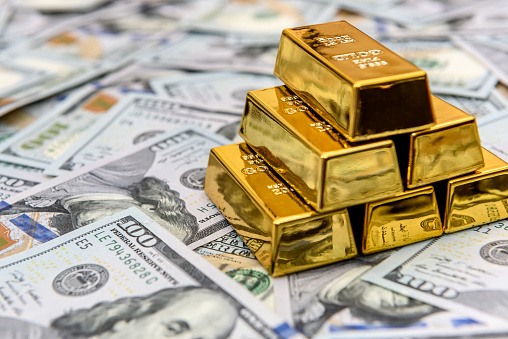The Middle East crisis pushes gold prices upward.
The gold price continues to rise, trading about $1,940 per troy ounce higher during the Asian session on Wednesday. Rising geopolitical tensions between Israel and Hamas are anticipated to increase demand for gold. As a traditional safe-haven asset.
According to Reuters, contradicting claims surfaced on Tuesday regarding an Israeli air raid in Gaza. With officials in Gaza reporting 500 injuries at a hospital and Israel stating the damage was caused by a Palestinian attack.
Positive statistics from China might give support for gold prices.
Furthermore, the yellow metal may profit from unexpectedly good economic data. China’s Gross Domestic Product (GDP) increased by 1.3% in the third quarter. Above predictions of 1.0%. The yearly report for the same quarter showed a 4.9% gain. Which above the predicted 4.4%.
Furthermore, China’s Retail Sales (YoY) increased by 5.5%. Above both the prior number of 4.6% and the predicted 4.9%.
After the Chinese statistics, the US Dollar Index (DXY) reverses intraday gains, trying to retain ground near 106.10 by press time. However, US Treasury rates rose, with the 10-year US Treasury bond yield reaching 4.83%, which might help the US dollar.
The US Bureau of Economic Analysis (BEA) reported that Retail Sales increased to 0.7% in September, above predictions of 0.3% MoM. Furthermore, the Retail Sales Control In comparison to the prior hike of 0.2%, the group experienced a significant gain of 0.6%.
Federal Reserve revealed that Industrial Production increased by 0.3%.
Furthermore, the Federal Reserve revealed that Industrial Production increased by 0.3%, compared to the projected standstill of 0.0%.
The Richmond Fed’s President, Thomas Barkin, stated. That the existing policy is already perceived as restrictive. Barkin expressed concern about the impending FOMC monetary policy meeting in November. Emphasizing that the US central bank cannot rely simply on longer-term higher bond rates to conduct monetary tightening measures.
Minneapolis Federal Reserve Bank President Neel Kashkari stated on Tuesday. That inflation has continued for a longer period than expected and is abnormally high. This viewpoint is consistent with the dovish approach held by numerous other Fed members.
Moreover Investors are expected to The attention will most likely be on the housing statistics. And Fed members’ statements on Wednesday, which may provide some signals about future monetary policy courses.









